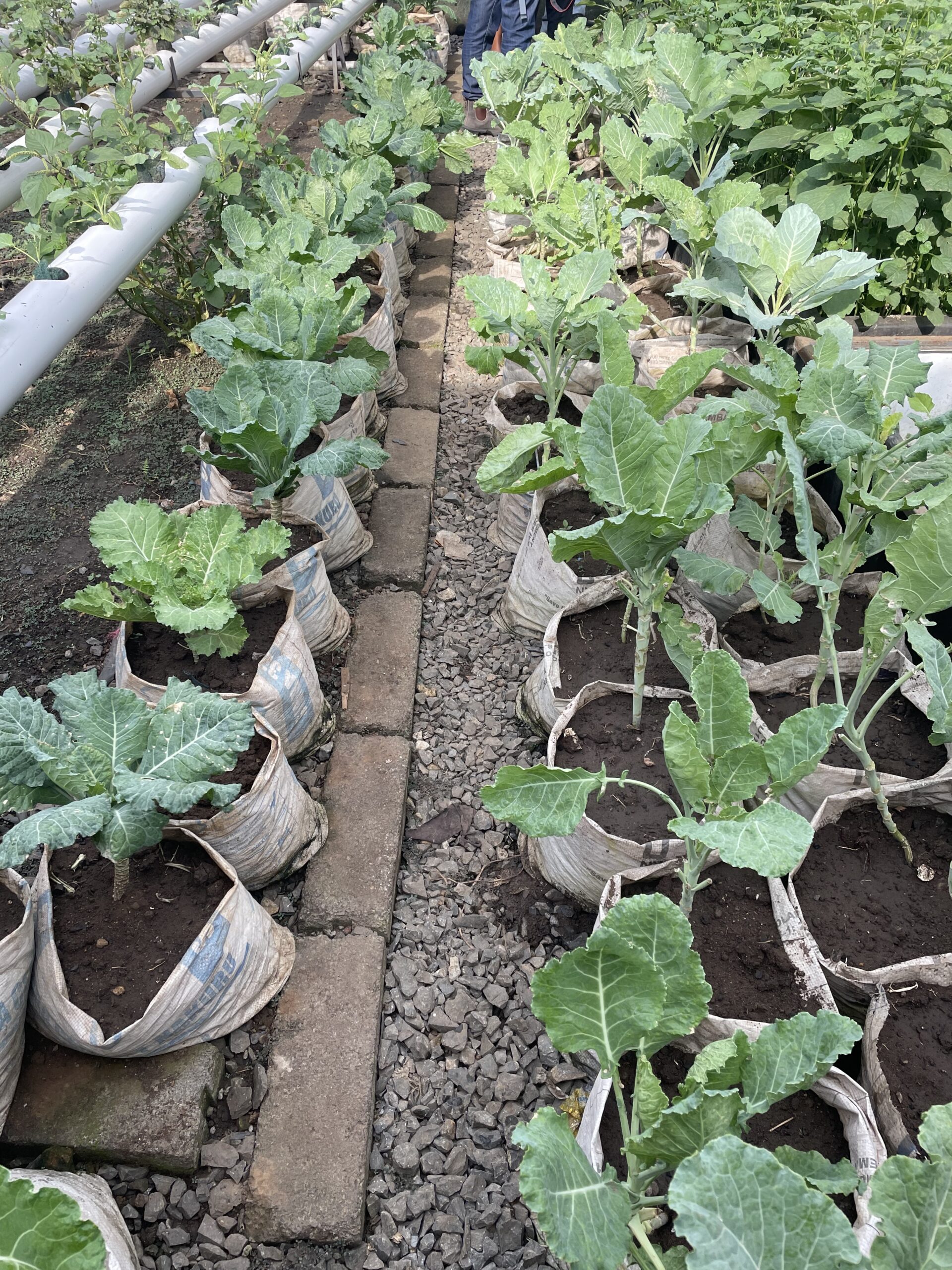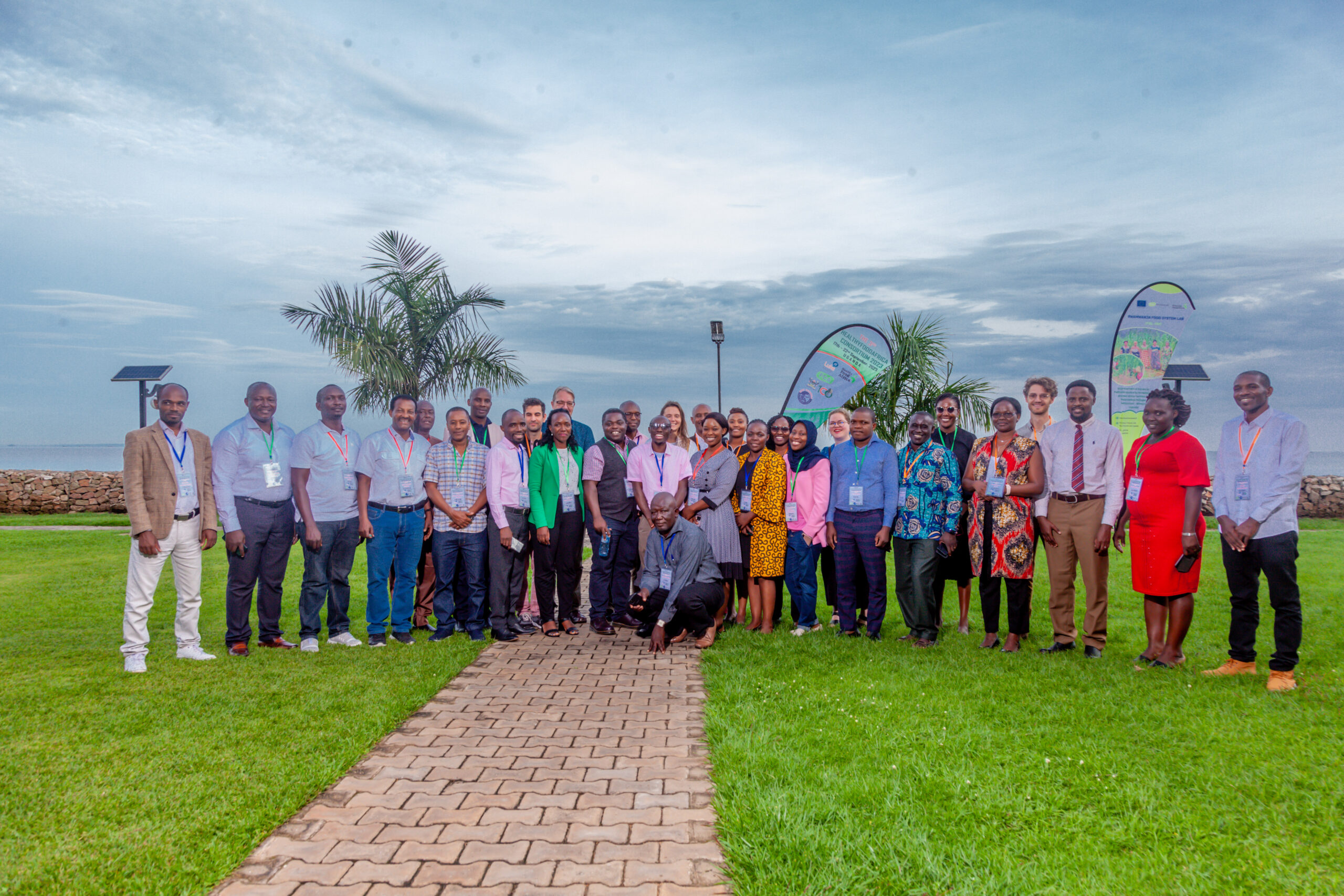Incubator Project: Lab to Mouth
From Lab to Mouth: Enhancing Household Capacities to Adopt Food Innovations Across Africa
This project, led by Dr. Harrison Esam Awuh of the Faculty of Geosciences at Utrecht University, researches the gap between food system innovations and their adoption by households in Africa. By building on insights from the Healthy Food Africa (HFA) initiative, which includes 10 living labs in six countries across Eastern, Western, and Southern Africa, the research aims to empower households to adapt sustainable food practices, bridging the divide between innovation development and real-life implementation.
Key Goals
- Preparing Households for Food System Transformation
Innovations in food systems, particularly in response to climate change, are critical for building sustainable futures. However, the capacity of households to adopt these innovations remains underexplored. This project seeks to address that gap, emphasizing that transformation begins at the level of individual households.
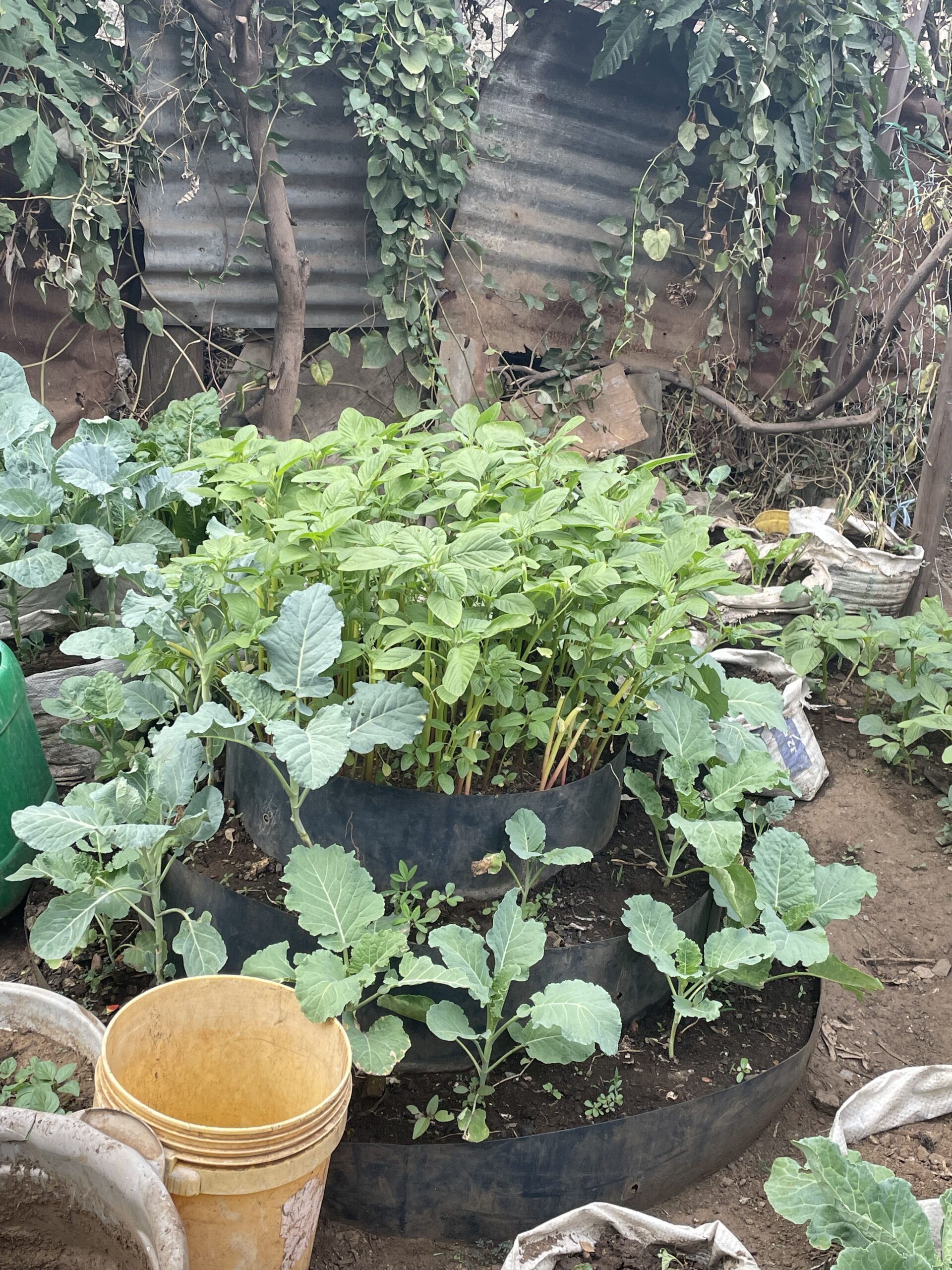
Households are central to food consumption and production systems. Yet, despite being part of the co-creation process in Living Labs (LLs), intended users often lack the tools, skills, and knowledge needed to implement the innovations effectively. This research aims to identify the barriers households face and provide capacity-building interventions that will enable them to embrace and sustain these innovations in their daily lives.
- Creating a Theory of Change for Adoption
A Theory of Change (ToC) will guide the research by outlining the pathways and assumptions needed to enhance household capacity for adopting innovations. The ToC will explore:
- Barriers that prevent adoption, such as lack of infrastructure, education, or cultural acceptance.
- Enablers, including local networks, educational programs, and policy incentives, to ensure smooth integration of food innovations into household routines.
By mapping these processes, the ToC will serve as a practical roadmap for Living Labs and their stakeholders, showing how innovations can transition from labs to the households that need them most.
- Strengthening Multi-Stakeholder Collaboration
Transforming food systems requires more than just technical innovation—it demands collaboration across sectors, cultures, and disciplines. This project will connect local food system labs, policymakers, and researchers to work collectively toward solutions. It recognizes that food transformation is inherently political and involves navigating competing interests, values, and power dynamics.
Through international workshops and consortium meetings, the project will foster networks that link stakeholders in the Netherlands with their counterparts in Africa. This collaboration will bring diverse expertise to bear on the complex challenges of food system transformation.
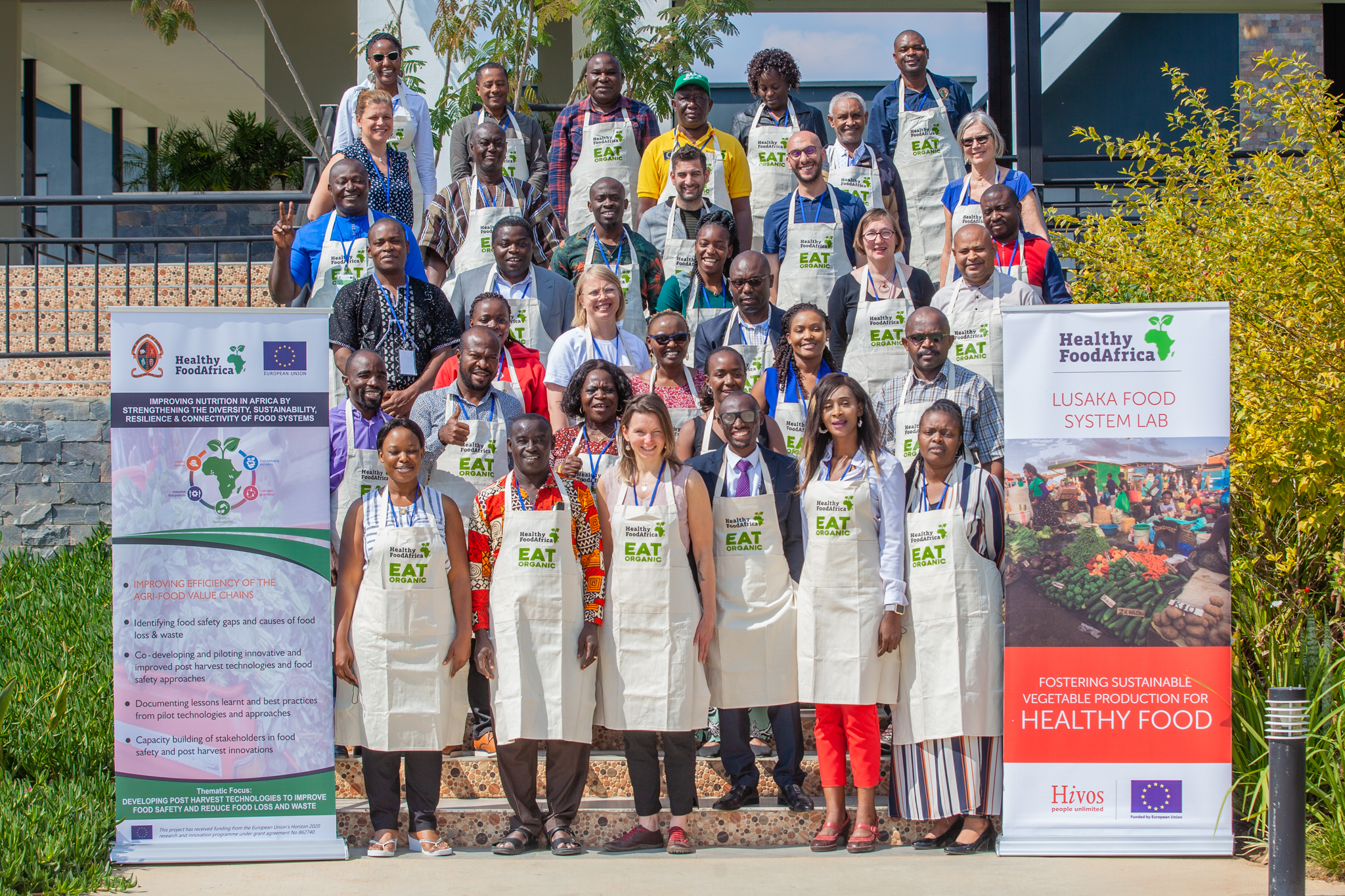
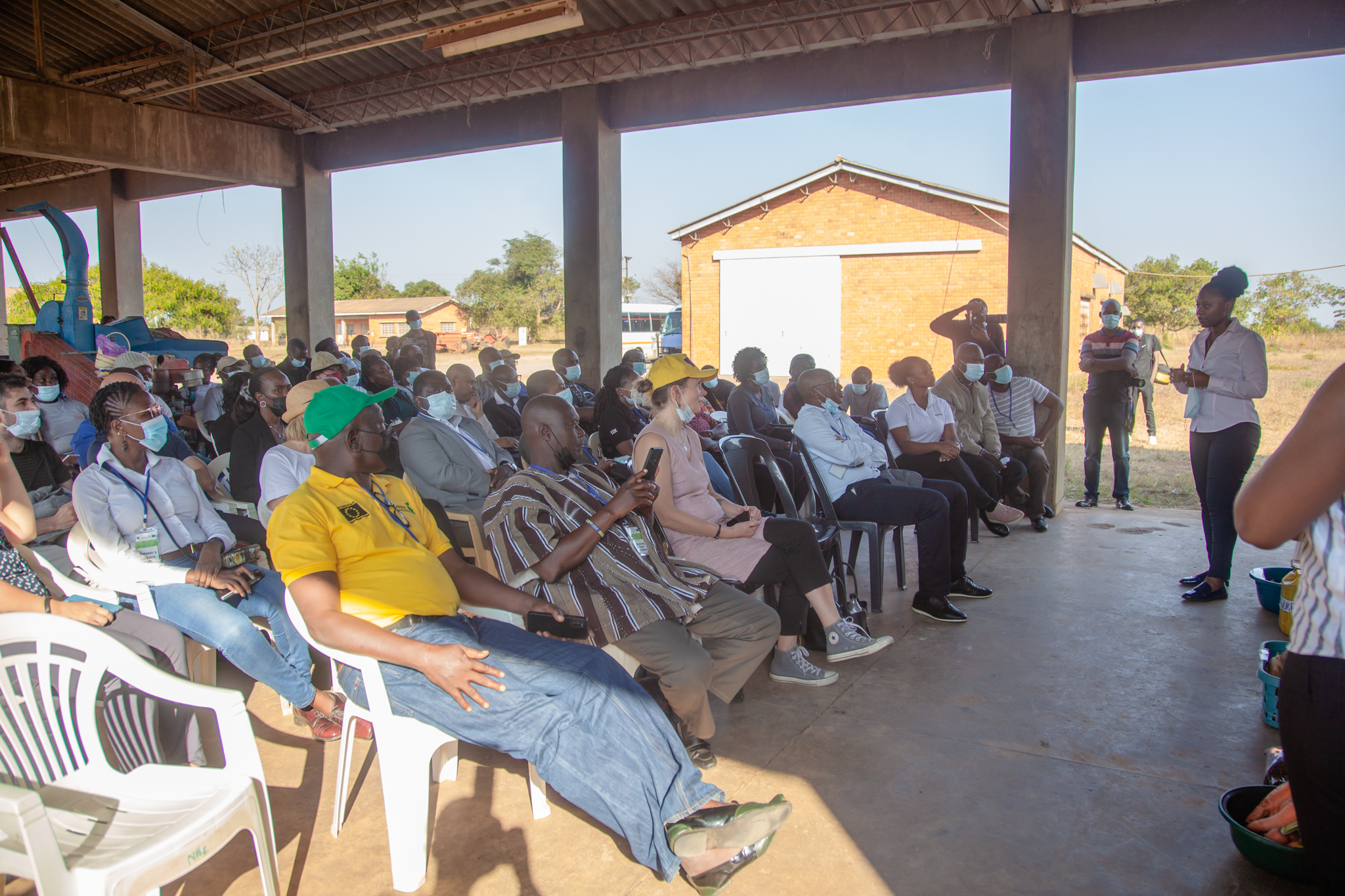
Why Focus on Living Labs in Africa?
Living Labs as Innovation Hubs
Living Labs (LLs) are dynamic spaces where citizens, researchers, and practitioners co-create solutions in real-world settings. In the context of food systems, LLs serve as test sites for innovations aiming to improve food production, processing, and consumption practices.
Africa’s food systems are facing unique challenges, including climate variability, urbanization, and food insecurity. LLs in the Healthy Food Africa initiative address these challenges by developing locally applicable innovations. However, despite their participatory nature, there is a critical gap in ensuring that these innovations reach their intended users. This research focuses on filling that gap by investigating how households can be better prepared to adopt and sustain the solutions developed within LLs.
A Diverse Regional Perspective
The project spans six African countries, reflecting the continent’s ecological and cultural diversity. This broad scope allows the research to capture varied experiences, from urban innovations addressing food security in large cities to rural practices focusing on climate-resilient agriculture.
By engaging 10 food system labs across these regions, the project taps into a wealth of local knowledge and expertise. These labs bring an intimate understanding of their communities’ needs, ensuring that the research remains grounded in real-world contexts while exploring how to scale up successful interventions.
Action-Oriented Research
Unlike traditional academic studies, this project is deeply action-oriented. By engaging directly with households and communities, it aims to produce practical tools and interventions that can be implemented immediately. These outputs will include training materials, policy recommendations, and localized capacity-building programs designed to help households integrate food innovations into their daily lives.
Expected Outcomes
Empowered Households
The ultimate goal of the project is to empower households to play an active role in transforming food systems. By equipping them with the skills and resources they need, the research will help bridge the gap between innovation development and real-life application.
Sustainable Food Practices
The project aims to foster lasting changes in food production and consumption practices. This includes promoting climate-resilient agriculture, reducing food waste, and encouraging healthier dietary habits—all aligned with the broader goal of sustainable food systems.
Stronger Networks
By bringing together stakeholders across Africa and the Netherlands, the project will build lasting networks that can support future collaborations in food systems research and practice.
Policy Impact
The insights generated by the project will inform policymakers and practitioners about how to design and implement food system innovations that are not only technically sound but also socially and culturally viable.
This project represents a bold step toward bridging the gap between innovation and adoption in African food systems. By focusing on household capacities, it ensures that the transformative potential of Living Labs is realized in communities, fostering healthier, more sustainable food systems for the future.
